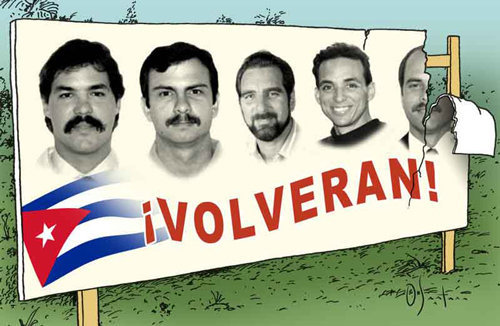
The news of the declarations made by Gerardo Hernandez, one of the 5 heroes of the Cuban Revolution, has had a real impact. The spy who is imprisoned in the United States proved that his own government is lying. He acknowledged the fact that the shoot-down of two “Brothers to the Rescue” aircraft, carried out by Cuban Air Force pilots in 1996, occurred over international waters.
Since then, he has anxiously waited to hear the Cuban government’s version with respect to his declaration. On December 31, in the press note section, the Granma newspaper made reference to a letter sent on the 28th by Belgian representatives and senators to U.S. members of congress. This letter expressed concern for the “fate of the 5 Cuban anti-terrorists.” This occurred one day after one of the spies made a declaration proving that his government had, without any justification, shot down two aircraft over international waters.
On January 1, Granma published four “messages from the 5 heroes.” Three of these were signed by Antonio, Rene, and Fernando. The fourth, which was dated December 15, includes the signature of all with a special recognition for Gerardo, assuring that in his case, “evil has the upper hand.” This is a sign that they are preparing the grounds to justify his conduct.
I must admit that I received such news with much joy. Once again, life has demonstrated that human nature is above any ideological conceptions. It is time to question to whom Gerardo was being loyal: the magnanimous Revolution or the assassins who gave the orders to end the lives of four of his fellow countrymen.
I ask myself: how is it that the cause of the 5 is so boasted about throughout Cuba and among all its committees of solidarity spread out through the world? Nothing can justify the events which occurred on February 24, 1996. It can only be called one thing: State-Sponsored Terrorism. The Cuban government lied, and will continue lying, in order to achieve impunity. I do not believe that the declarations made by Gerardo will make them change their position in any way.
Nevertheless, the assassination of the four Cubans is heavily weighing on the government’s shoulders, especially on the shoulders of the Castro brothers: the ailing Commander of the Revolutionary Armed Forces, and the President of the State Council, who are the same person. Perhaps this is why he did not publicly attend the inauguration of the new Brazilian president.
Up to not so very long ago, there was only one man who was willing to pay for him. Twelve years ago, the historic leaders had promised him that he would return, despite the fact that he was being sentenced by the American courts to a life sentence for planning an assassination.
We must acknowledge that they did try absolutely everything. For each one of these spies, they jailed 15 dissidents, to simply use them as trading currency later. Desperate or not, Gerardo grew tired of waiting and decided to fight for the most prized possession of any human being — freedom.
One week later, the people of Cuba do not know the disturbing confessions made by the chief spy of the Wasp Network in Miami. It’s as if nothing has occurred, despite how transcendental his declaration was. It seems that the star which represents the 5 will remain intact for some time, despite the fact that one of its tips has shattered.
Photos: Omar Santana
Translated by Raul G.
January 18 2011
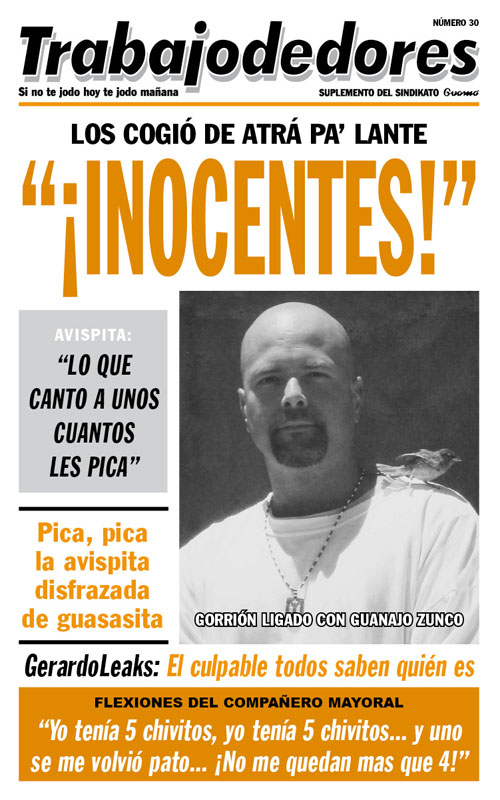

 Heaven and earth came together for Danay when Lester, her ex-spouse, confessed to her with tremendous calm that he didn’t love her. He tried everything to save his 10 month-old marriage. The young lady, until yesterday a Christian, lost faith in God and in man. Today she is looking for the guilty party who left her with the bitter aftertaste of feeling used.
Heaven and earth came together for Danay when Lester, her ex-spouse, confessed to her with tremendous calm that he didn’t love her. He tried everything to save his 10 month-old marriage. The young lady, until yesterday a Christian, lost faith in God and in man. Today she is looking for the guilty party who left her with the bitter aftertaste of feeling used.
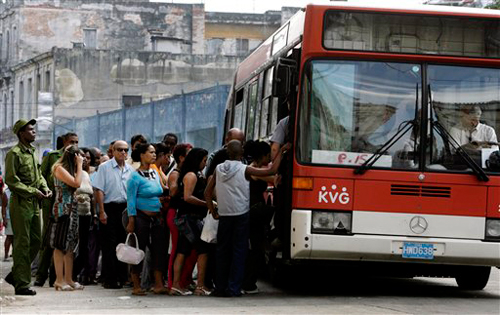
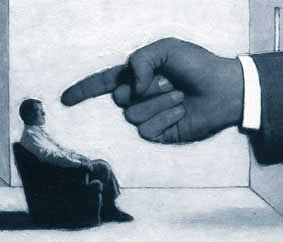 “One accused is presumed innocent, as long as he has not been convicted.” The principle is regulated internationally in the Universal Declaration of Human Rights, but for the Cuban state it is irrelevant, despite having pledged in 1948 to respect the rights contained in it.
“One accused is presumed innocent, as long as he has not been convicted.” The principle is regulated internationally in the Universal Declaration of Human Rights, but for the Cuban state it is irrelevant, despite having pledged in 1948 to respect the rights contained in it. It is the third night that Roger Martinez, a young man of 35, comes home drunk. His wife cannot handle this situation any longer. She had to ask her neighbor for two eggs to accompany the white rice she made for her children’s dinner. Meanwhile, she wonders how her husband manages to get money to intoxicate himself nearly every single day.
It is the third night that Roger Martinez, a young man of 35, comes home drunk. His wife cannot handle this situation any longer. She had to ask her neighbor for two eggs to accompany the white rice she made for her children’s dinner. Meanwhile, she wonders how her husband manages to get money to intoxicate himself nearly every single day.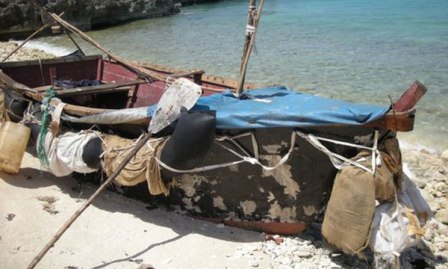 José, with his 35 years, dreams of driving a convertible silver Audi. His eyes are open, it was not difficult for him to come back to reality when his fan stopped due to a blackout. The heat of the night activates his brain. He thought of a solution for his existential problems.
José, with his 35 years, dreams of driving a convertible silver Audi. His eyes are open, it was not difficult for him to come back to reality when his fan stopped due to a blackout. The heat of the night activates his brain. He thought of a solution for his existential problems.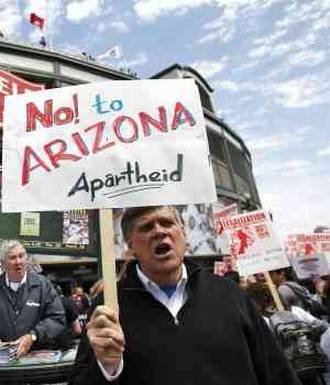 Not infrequently, the Cuban government has spoken out against anti-immigrant laws in developed countries. However, nobody could imagine that there are legal regulations on the island similar to SB 1070, which was passed by U.S. state of Arizona on April 23 and which authorizes state police to arrest people suspected of being an illegal immigrant.
Not infrequently, the Cuban government has spoken out against anti-immigrant laws in developed countries. However, nobody could imagine that there are legal regulations on the island similar to SB 1070, which was passed by U.S. state of Arizona on April 23 and which authorizes state police to arrest people suspected of being an illegal immigrant.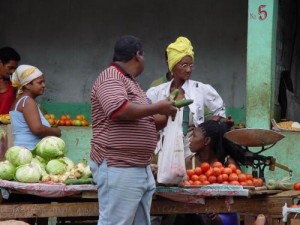 The newspaper Granma has called the meetings of country’s social sectors, to define what the economic model should be in future, an unprecedented and improbable event in the contemporary world.
The newspaper Granma has called the meetings of country’s social sectors, to define what the economic model should be in future, an unprecedented and improbable event in the contemporary world.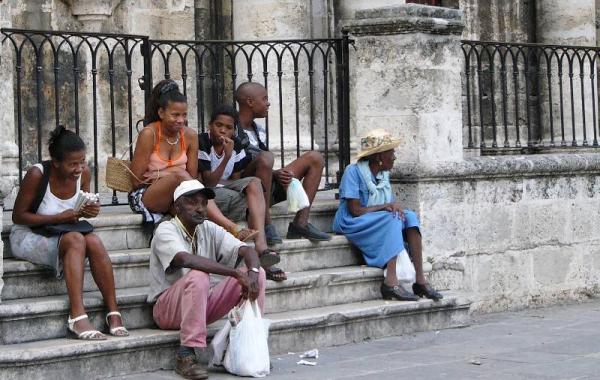
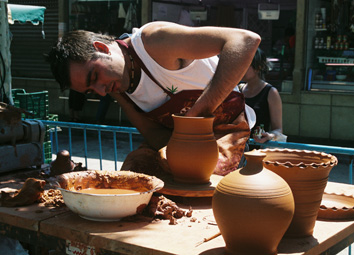 After two months, uncertainty fills the Cuban scene. The government still has not specified the principles that will govern self-employment. Meanwhile, the number of the unemployed and the expectations of the population are increasing.
After two months, uncertainty fills the Cuban scene. The government still has not specified the principles that will govern self-employment. Meanwhile, the number of the unemployed and the expectations of the population are increasing.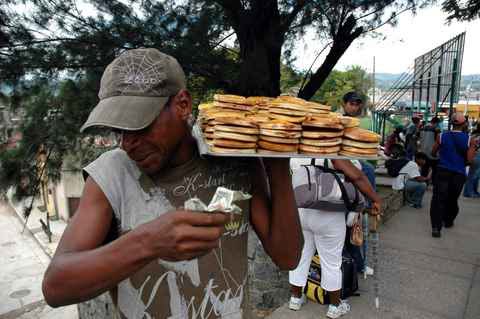 The draft guidelines for economic and social policy proposed by the Cuban communists declare that equal rights and opportunities exist for all citizens, not egalitarianism. But at no point do they give respect to the rights of Cubans.
The draft guidelines for economic and social policy proposed by the Cuban communists declare that equal rights and opportunities exist for all citizens, not egalitarianism. But at no point do they give respect to the rights of Cubans. People in his neighborhood call Pedro Luis García El Balserito, the Little Rafter, because of the number of times he has attempted to flee the country – always by sea. He has yet to reach his goal, but he says he’ll never cease his efforts, and that the only way to stop him is to lock him up.
People in his neighborhood call Pedro Luis García El Balserito, the Little Rafter, because of the number of times he has attempted to flee the country – always by sea. He has yet to reach his goal, but he says he’ll never cease his efforts, and that the only way to stop him is to lock him up.